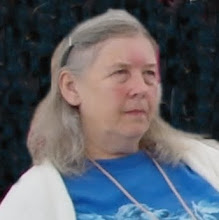What gives you inspiration to write? This is a question I am often asked. My usual reply includes the sage thought, “Writers write about what they know”. We all do this. We use experiences, phrases, stories told by others and pictures we see in our minds to weave a web of words to create something new, but which is based firmly in our own reality.
The opportunity for stories comes in many different guises. Take last week. I was sitting on New Street station in Birmingham waiting for a train to take me to Sheffield for a regular meeting with my line manager. The train was late and the man sitting next to me became very agitated. He was travelling to Leeds for a meeting with a different law firm from mine and was worried he would be very late.
“Why are you going to Sheffield?” he asked.
“My boss likes to make sure I’m alive and being nice to people.”
“That’s good,” he said. “I’m still alive yet 15 years ago a man was charged with my manslaughter. The police weren’t so nice then as they are today.”
It seemed such a strange fact to be sharing with a total stranger on a railway station. In one way I could wish there had been opportunity to discuss his life story further, but even so, he offered me the perfect beginning to a murder mystery or thriller – if I wrote those genres!
So where did The Lady and the Bull come from?
In 1999, Cornwall saw a total eclipse of the sun. It was also the year I decided to start visiting ancient sites all over the county. While my family enjoyed themselves at Shires adventure park, I went in search of some standing stones on the moor and Pawton Quoit. As I walked along a farm track, I was accosted by two traveller’s dogs. The owner came out of their landrover and quietened them so I could pass.
The following week, a fellow camper and I spent a day hunting stone circles, quoits and holy wells. When we reached Madron Well, a family were already inside the chapel. The mother was breastfeeding her baby while their two older children sat quietly on the stone seats by the alter. One of the two men with her asked me if I wanted to taste the water inside the baptistery and gave me instructions how to step on the middle stone.
I refused, feeling nervous and worried I would slip into the water. It was something I always regretted. When I returned the following year, the baptistery was dry – the local farmer had diverted the water supply from the sacred well. It was ten years before the water flowed again, thanks finally to the work of Andy Norfolk and others who love the site.
Even when I did collect water flowing into the stone baptistery, having gone to the chapel again with some German friends of ours, I was accosted by a local busybody who told me it was contaminated and shouldn’t be drunk!
But what of The Lady and the Bull? The story began as an account of our original day in West Penwith, which was eventually published in Circle magazine a year later. Then I took the first 500 words and decided to see what would happen if the woman who refused the water went back. The man who told me how to collect the water fascinated me. What would happen if he were still around? What was his history? What would she learn from being associated with him?
It was a difficult story to write. I had a vague idea of the outline, but in the end, the story decided what it wished to portray. When writing dialogue became a challenge, I was grateful to a friend of mine for helping to role play some of the scenes online so I could use the saved script as a basis for parts of the story.
For me, creating The Lady and the Bull was a profound teaching experience, helping me to understand a spiritual concept in greater detail. My readers may enjoy it for the developing romance and descriptions of wonderful Cornish countryside.
My only sadness is the fate of Altarnun bowsenning pool. I wish it were the clear, bathing pool it once was and could be again. Unfortunately, the farmer who owns the land appears to have no wish to conserve it and has not co-operated with local Cornish Archaeologists. The Parish Council at Altarnun is similarly uninterested in saving their unique heritage for future generations despite approaches by myself and others from the Wells and Spas community.
The Roman remains lie hidden and inaccessible under fallen trees and undergrowth. Maybe, the strength of the story will somehow reach out and touch the future in a way we cannot perceive today.
Monday, 13 July 2009
Subscribe to:
Comments (Atom)








